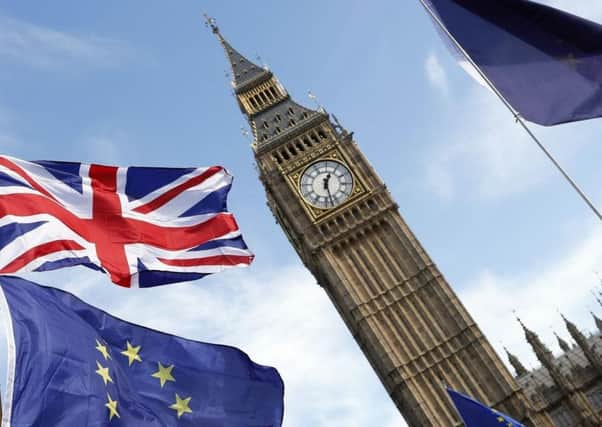Anand Menon: North needs more power in a post-Brexit Britain


Remember the summer following that vote? Cities in the North, previously all but ignored by the national media, witnessed national reporters falling over each other in their desperation to figure out what had happened that previous June. Why had all the English regions outside of London voted to ignore the advice of a majority of the political and economic establishment?
The answers, of course, were many and varied. Leavers were a disparate bunch who voted for a variety of – frequently contradictory – reasons. Indeed, this is among the many reasons why both the Government and the country are struggling to make sense of the referendum result and last June’s election.
Advertisement
Hide AdAdvertisement
Hide AdYet among the Shire Tories and East Coast Tory/UKIP waverers who voted to leave the EU, there was also a significant number of traditional Labour voters in the North of England. Some 37 per cent of those who voted Labour in 2015 voted Leave in 2016.
Even among this lattermost group, there were many different reasons for voting Leave, yet among them was a profound sense of frustration – including real economic grievance.
On almost any measure of income, Yorkshire and Humberside scores well below the UK average, and is falling further behind. Household disposable income in the region has been significantly below the national average for over a decade and the gap is growing. The region is also 15 per cent less productive than the UK average.
At the same time, it receives less than the national average in terms of central funding: 20 per cent less than the UK average on transport spending; 35 per cent less on economic development spending. Government spending per head has fallen by about £200 per person over the last five years, and the gap with the UK average has increased from £270 in 2012-13 to £350 in 2016-17. Education spending is about £50 per head below the national average, while London, by way of comparison, receives around £280 more than that average.
Advertisement
Hide AdAdvertisement
Hide AdI could go on. But the picture is clear and it is stark. Outcomes are worse, and government spending is lower. Now, while nothing much has changed in concrete terms since the referendum, one thing has. Brexit has altered the nature of the national political debate.
We have a Conservative Prime Minister who has expressed concern at the plight of the ‘just about managing’, while the 2017 election underlined that the Conservative Party now has a genuine interest in attracting working class voters in the traditional Labour heartlands. And, on the other side of the aisle in the House of Commons, we have an Opposition apparently more committed to dealing with economic injustice than any we have seen in recent times.
The political debate, in other words, is shifting. Thanks in part to the referendum, the scope of political debate has widened enormously. So, what now? If, as I have argued, the referendum can be seen – in part at least – as a reaction against the way in which parts of the North have been effectively ignored or at least not sufficiently noticed by government, there are several clear ways to address this. The first, and most obvious, is to increase the resources invested in regions like Yorkshire and Humberside.
Another would be to devolve more power to the region. There is already evidence that metro mayors have made a difference to British politics. Moreover, the notion of a metro mayor helps avoid the trap of city mayors focusing narrowly on their patch, in a country where the division between cities and their surrounding towns is becoming politically and economically stark. Finally, as long as some regions have such elected representatives, while others do not, it places the latter at a disadvantage when it comes to effectively representing regional requirements to central government.
Advertisement
Hide AdAdvertisement
Hide AdAll this is just the tip of the iceberg. But the point is that, in the context of post-referendum Britain, there is a unique opportunity to think – and act – differently. Obviously, progress is far from given. For one thing, the political class seems far too busy refighting the referendum to turn its collective attention towards how to build a post-Brexit Britain. Moreover, leaving the European Union will negatively impact on the British economy, making it harder to deal with the kinds of problems that has led to such disillusionment.
Yet the opportunity to do things differently is real. The kaleidoscope of British politics has been well and truly shaken. And it is up to the country’s political leaders to rearrange the pieces into a coherent pattern. Politicians need to respond to the howl of protest that woke them in the early hours of June 24, 2016. No longer can they simply plug their ears. Let that be the legacy of the European Union referendum.
Anand Menon is director The UK in a Changing Europe and professor of European politics and foreign affairs.